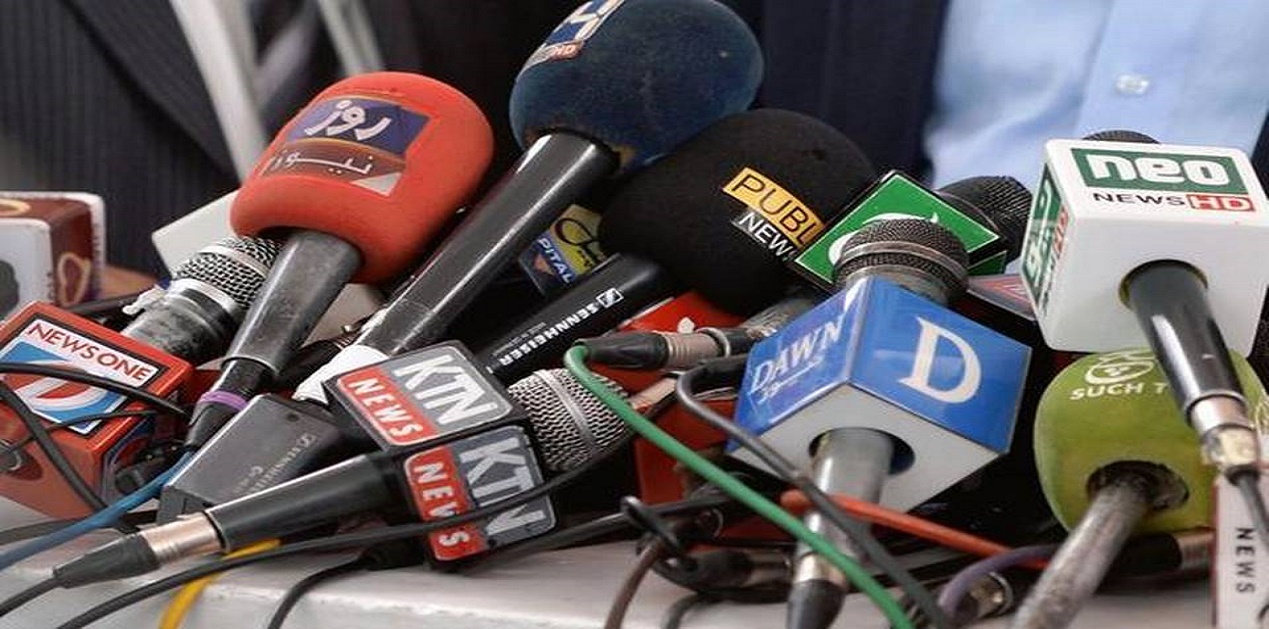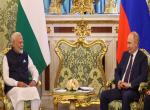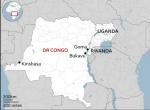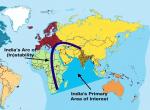On July 22, 2020, Pakistani senior journalist Matiullah Jan, known for his critical views of the country’s judiciary and military, was abducted and later released by unidentified persons in Islamabad. The incident has once again focused a spotlight on the dire state of press freedom in Pakistan. Although the relations between the press and the Pakistan state was never a smooth one, the freedom of the press in the country has seen a dramatic fall particularly under the regime of Prime Minister Imran Khan. At present, the Pakistan media is facing an undeclared censorship. The current repressive measures on the press in Pakistan can be contextualized in the background of Pakistan army’s latest obsession with ‘Fifth generation hybrid warfare’.1
The military brass in Rawalpindi views the world in a narrow and highly securitized sense in which it believes that different ideologies are at work to weaken Pakistan from inside. In this case, everything becomes a war of narratives and the military, as the self-proclaimed guardian, has to protect the country in this ideological and information warfare. This worldview allows Rawalpindi to justify its meddling in the political and democratic sphere, thereby weakening the democracy and censoring the press freedom. Any journalist who questions the narrative put forth by the military is censored and eventually discredited by being labelled as ‘anti-state’ and ‘anti-national’.2
The disdain of Pakistan military for free media came to the forefront when in a Tweet in June 2018, Major General Asif Ghafoor, the then Director-General of the Inter Service Public Relations Pakistan (ISPR), targeted more than a dozen journalists for their alleged “anti-Pakistan” activities on social media. He reiterated his views in June 2019 which triggered the trend #ArrestAntiPakistanjournalists on Twitter in Pakistan.3 By creating an atmosphere of fear and intimidation, the hybrid state in Pakistan is pushing the journalists in the country to practice self-censorship on controversial issues.
According to a report released by Freedom Network in April 2020, in last 12 months, Pakistan has seen “91 assaults and other violations against journalists including the killing of seven journalists, two abduction cases, nine detention cases, eight instances of frivolous lawsuits, 10 cases of censorship, 10 physical assaults, half of which caused severe bodily injuries, and more than 20 cases of written or verbal threats.”4 The World Press Freedom index ranked Pakistan at 145 out of 180 countries in 2020, lowering its ranking by six positions since 2018.5 In the past few months, many cases of blatant censorship in Pakistan have come forward in which the military has used various tactics to throttle the press freedom.
The media groups critical of the government are frequently targeted and blacked out. In July 2019, three Pakistani TV news channels- Channel 24, Abb Takk News, and Capital TV-were suspended for airing the views of opposition leader Maryam Nawaz.6 The Imran Khan Government has also threatened to withdraw the advertisements, which are a major source of revenue for the media, in a bid to control newspapers and TV news channels. In May 2019, Dawn journalist Mubashir Zaidi mocked the Pakistani government in a tweet that it had banned advertisements for Dawn newspaper and TV channel on Press Freedom Day to create “naya Pakistan”.7 There have also been reports that the distribution of newspapers, like Dawn, which is known for raising critical questions about the government, the military, and the courts, had been disrupted in many areas.8
Further, over past few years, many journalists like “Talat Hussain, Najam Sethi, Nusrat Javed and Murtaza Solangi have been forced out of their jobs”9. The widespread sense of intimidation, threat, abduction, and psychological trauma has pushed other prominent journalists like Taha Siddiqi and Gul Bukhari to seek refuge abroad. In June 2020, the Human Rights Council of the United Nations questioned the illegal detention of Mir Shakil ur Rehman, owner of Jang/Geo media house, by the Pakistani state.10 Perhaps, nowhere in Pakistan, the threat for journalists is so grave as in Baluchistan and Khyber Pakhtunkhwa.11 The mysterious death of Sajid Husain, the chief editor of Baluchistan Times, in Sweden raises several questions about the deep state in Pakistan and its war on journalists demanding democracy, human rights, rule of law, and transparency.
In January 2019, the Khan Government through a cabinet decree approved the formation of Pakistan Media Regulatory Authority (PMRA), a single body which is tasked with regulating all forms of media, especially digital media platforms. This particular move created a huge furor among journalists and media professionals who called it an “attempt to curb freedom of the press”.12 In recent times when most of the news channels and media houses are practicing self-censorship, the online social media platforms such as Facebook, Twitter, and YouTube have become the refuge for independent journalists to broadcast their views to a larger audience. However, in February 2020, Pakistan government quietly passed a set of regulations to control the social media as well. The “Citizens Protection (Against Online Harm) Rules, 2020” mandates the social media platforms to remove or block content which is considered objectionable by the government.13 These new rules were heavily criticized by the tech giants- Google, Facebook, Twitter- who together threatened to leave the country, and thereby forced the government to retreat.14 According to Twitter’s 2019 transparency report, “between July and December in 2018, the PTI government sent requests for the removal of 193 accounts and reported 2,349 profiles to the micro-blogging website.”15
Matiullah Jan’s abduction and later release fall into the already established pattern of subjugating the press by the deep state in Pakistan. It also indicates a grim future for journalists in the country. The enforced disappearance, according to UN experts- including “short-term disappearance”- is a technique of terror used by security/intelligence officers as a response to “legitimate civil strife demanding democracy and freedom of expression”.16 Pakistan has always shared an uneasy relationship with media freedom due to the military’s constant interference in the domestic sphere. The 1980’s under General Zia-ul-Haq was infamous in Pakistan for worst phase for press freedom when journalists were jailed and beaten, and newspapers were censored. Imran Khan’s two years in government and its policies vis-à-vis the Press is a flashback to the haunted days of General Zia’s rule in Pakistan.
Endnotes
- Hannan R Hussain, “Press Freedom Under Siege in Pakistan: Where to Next?”, The Diplomat, 12 December 2018, URL: https://thediplomat.com/2018/12/press-freedom-under-siege-in-pakistan-where-to-next/
- Ibid
- Hannah Ellis-Petersen and Shah Meer Baloch, 'Extreme fear and self-censorship': media freedom under threat in Pakistan, The Guardian, 5 November 2019, URL: https://www.theguardian.com/world/2019/nov/05/extreme-fear-and-self-censorship-media-in-pakistan-under-attack
- Freedom Network Annual Press Freedom Report 2020, Freedom Network, 30 April 2020, URL: http://www.fnpk.org/wp-content/uploads/2020/04/Pakistan-Press-Freedom-Report-2020.pdf
- Reporters without borders, Pakistan, URL: https://rsf.org/en/pakistan
- Asad Hashim, Media watchdogs slam 'brazen censorship' by Pakistan, Al Jazeera, 10 July 2019, URL: https://www.aljazeera.com/news/2019/07/media-watchdogs-slam-brazen-censorship-pakistan-190710131424680.html
- Mubashir Zaidi, Twitter, 3 May 2019, URL: https://twitter.com/Xadeejournalist/status/1124369889433665536
- Disruption to Dawn’s distribution continues across country, Dawn, 20 June 2018, URL: https://www.dawn.com/news/1414903
- Tilak Devasher, Pak deep state’s war on media, The Tribune, 4 May 2020, URL: https://www.tribuneindia.com/news/comment/pak-deep-states-war-on-media-80023
- UN body asks govt to clarify reported persecution of media, Dawn, 27 July 2020, URL: https://www.dawn.com/news/1564049
- Aveek Sen, Will the death of Sajid Hussain be Pakistan’s Khashoggi moment?, The Week, 4 May 2020, URL: https://www.theweek.in/news/world/2020/05/04/opinion-will-the-death-of-sajid-hussain-be-pakistans-khashoggi-moment.html
- Tehreem Azeem, Pakistan’s Undeclared Censorship, The Diplomat, 16 May 2019, URL: https://thediplomat.com/2019/05/pakistans-undeclared-censorship/
- Pakistan's new internet laws tighten control over social media, DW, 24 February 2019, URL: https://www.dw.com/en/pakistans-new-internet-laws-tighten-control-over-social-media/a-52375508
- Vindu Goel and Salman Masood, Facebook, Google and Twitter Rebel Against Pakistan’s Censorship Rules, The New York Times, 27 February 2020, URL: https://www.nytimes.com/2020/02/27/technology/pakistan-internet-censorship.html
- Tehreem Azeem, Pakistan’s Undeclared Censorship, The Diplomat, 16 May 2019, URL: https://thediplomat.com/2019/05/pakistans-undeclared-censorship/
- Reema Omar, Legal Advisor, International Commission of Jurists, Twitter, 22 July 2020, URL: https://twitter.com/reema_omer/status/1285652554072940546
(The paper is the author’s individual scholastic articulation. The author certifies that the article/paper is original in content, unpublished and it has not been submitted for publication/web upload elsewhere, and that the facts and figures quoted are duly referenced, as needed, and are believed to be correct). (The paper does not necessarily represent the organisational stance... More >>
Image Source: https://th.thgim.com/news/international/xjhr4k/article28423553.ece/ALTERNATES/FREE_960/Th14-Mehmal-Media-crackdown











Post new comment